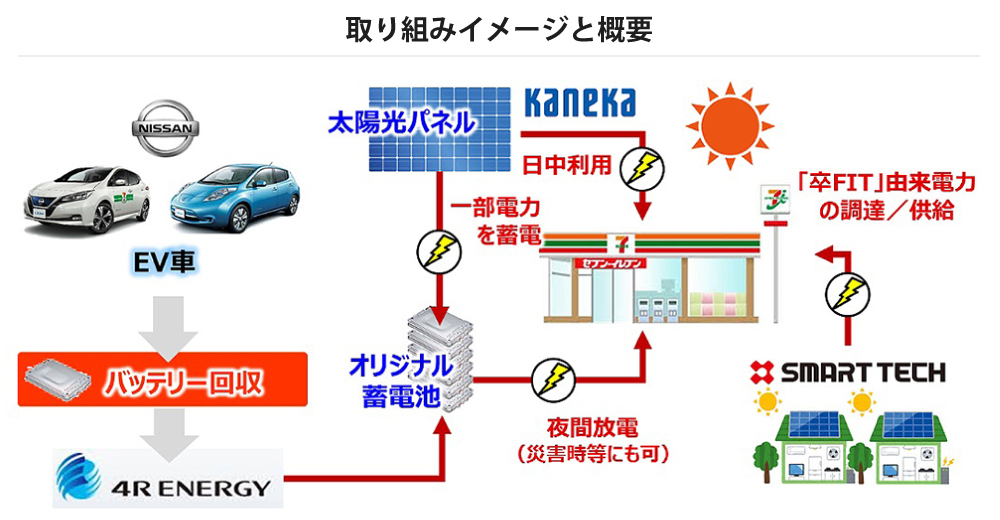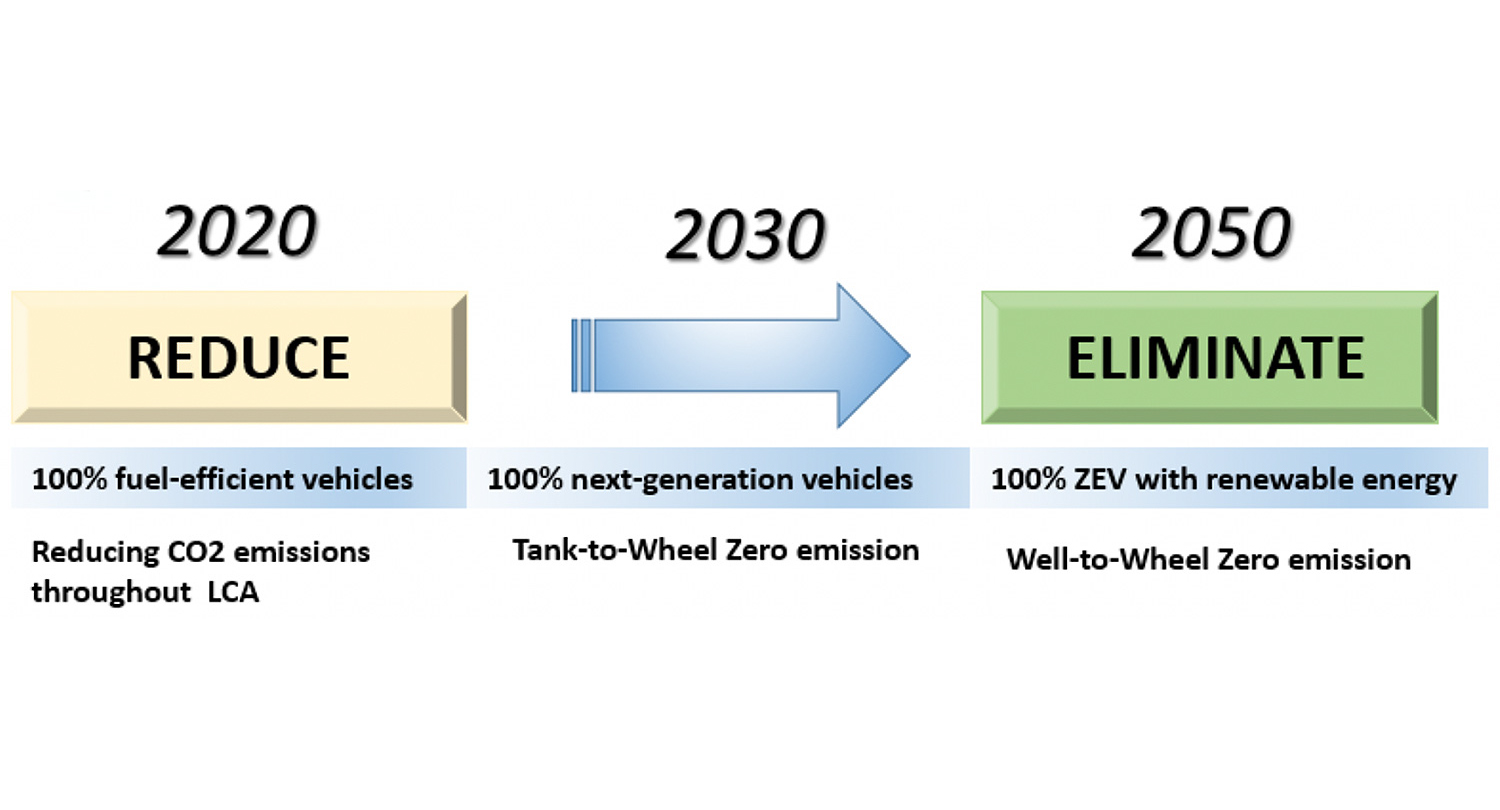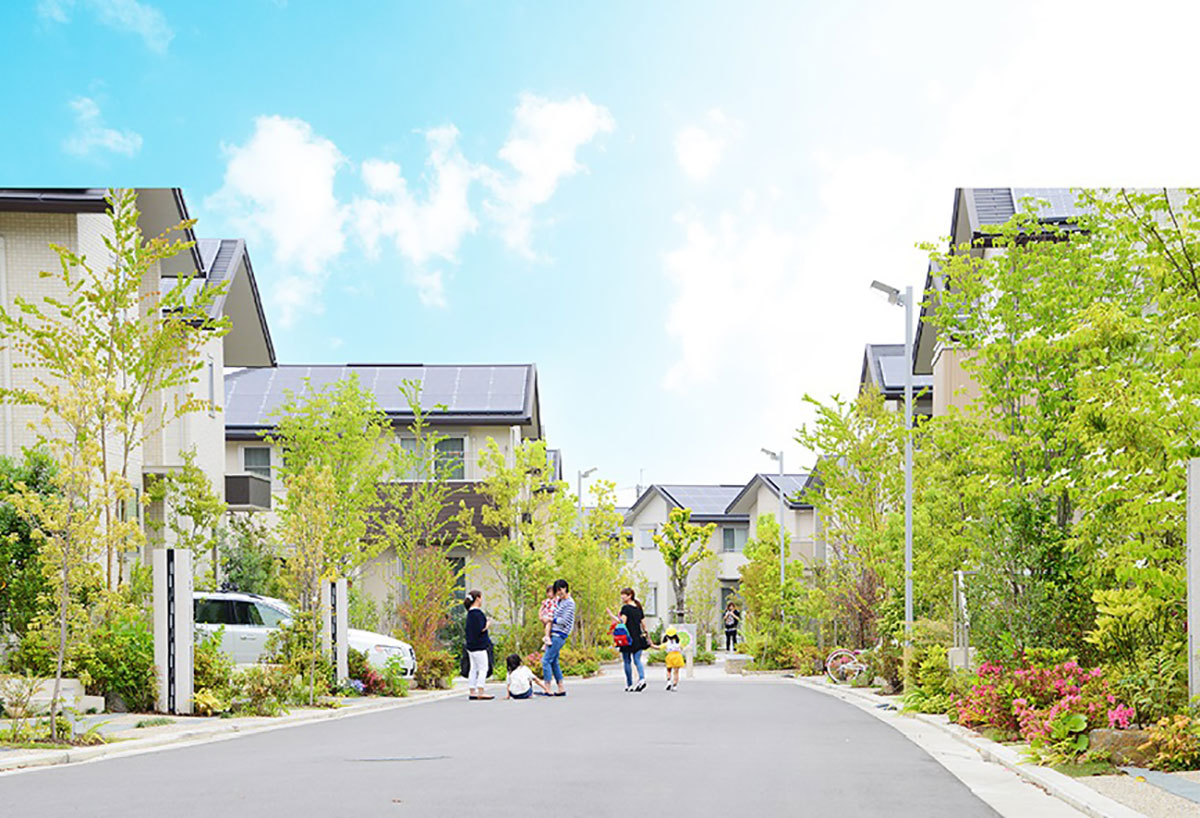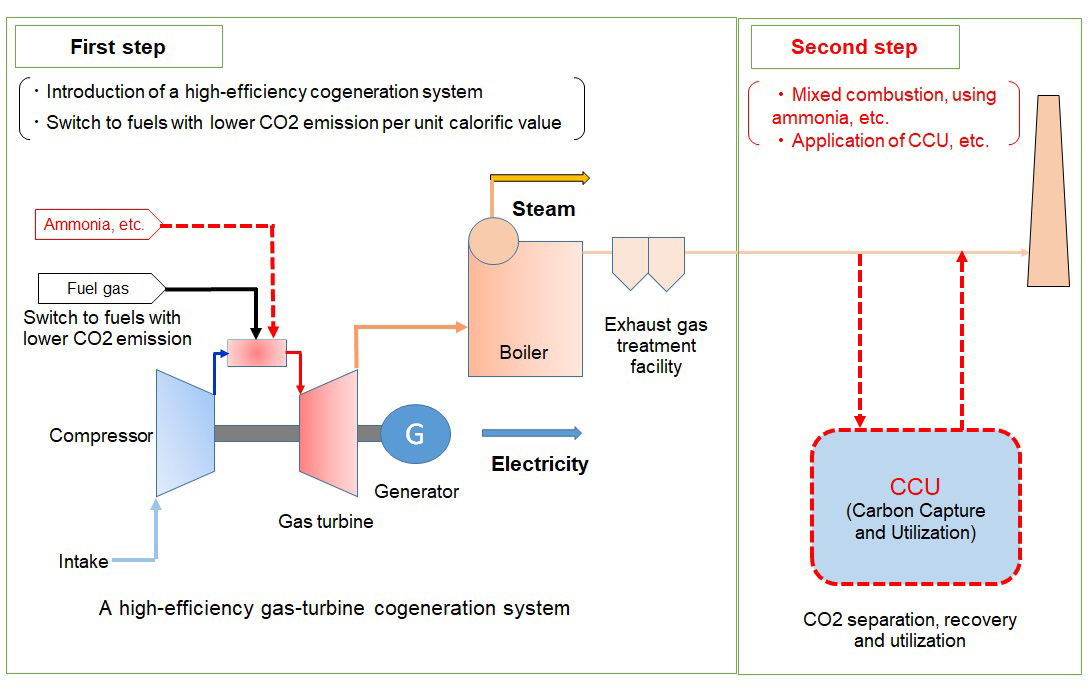Operation of 100% renewable energy stores using solar panels and storage batteries
Seven & i Holdings Co., Ltd.
Outline
As an initiative based on the "GREEN CHALLENGE 2050 Environmental Declaration" announced by the Seven & i Group in May 2019, we have started a demonstration experiment in 10 Seven-Eleven stores in Kanagawa Prefecture, in which all electric power for the store operations is procured from renewable energy.
This demonstration by SEVEN-ELEVEN JAPAN will be the first case at a convenience store for operating a CO2-net-zero store by using an original storage battery, which utilizes a battery that is still usable but will be discarded.
The storage battery charges renewable energy from solar panels installed in the store and discharges it at night, using it together with renewable energy generated from ordinary households (After FIT). The current challenge is cost and, in the future, securing renewable energy, not just FIT, but we plan to increase the number of CO2-net-zero stores to sustain stores operation.
Description
The store has an original storage battery that makes use of the used batteries of electric vehicles, and high-performance double-sided solar panels that increase efficiency by generating electricity even on the back of the panels.
We will make efficient use of renewable energy generated by our own power generation day and night. As for the procurement of electricity other than for private power generation, we are requesting the supply of electricity whose feed-in tariff (FIT) has expired, which is called “After FIT,” and we operate stores with an effective renewable energy ratio of 100%, including our own power generation.
CO2 emissions from SEVEN-ELEVEN JAPAN's business operations can be roughly divided into two elements: "store operation" and "logistics" The portion attributable to electricity consumption related to "store operation" accounts for approximately 90%. This initiative can significantly reduce CO2 emissions by replacing all electricity consumption with renewable energy that does not generate CO2 when generating electricity.
[Reuse batteries of electric vehicles]
Nissan Motor Co., Ltd. and 4R Energy Co., Ltd.
An original storage battery utilizes a used battery of one electric vehicle "Nissan Leaf" for each battery. It is also possible to supply power that can be used for motors. Thus, refrigeration cases of the store can work in the case of a power failure or the like. The original batteries are converted at the world's first plant receiving certification based on the Evaluation Standard for Battery Conversion "UL 1974" issued by UL, a third-party safety science organization in the United States.
Capacity: 40 kWh/unit.
[High performance solar panel]
KANEKA CORPORATION
High-performance solar panels have good power generation efficiency and temperature characteristics by using heterojunction technology to join semiconductor materials with different physical properties. By adopting a double-sided light-receiving structure, they can generate electricity on both sides of the solar panels and make higher power generation realized.
[Utilization of electricity generated by "After FIT "]
SMART TECH Co., Ltd.
Procured electricity from "After FIT," as FIT purchase period ended in October 2019, is supplied to the stores.
Partner(s)
Nissan Motor Co., Ltd., 4R Energy Co., Ltd., KANEKA CORPORATION, SMART TECH Co., Ltd.
Supplementary information
Seven & i Group Environmental Declaration GREEN CHALLENGE 2050
https://www.7andi.com/library/dbps_data/_material_/localhost/en/release_pdf/20190508_01en.pdf
Similar Innovation Challenges
Achieve 2050 decarbonization target with Net Zero Energy House!
Sekisui House, Ltd.
Achieving net-zero emissions by promoting renewable energy use through both our monozukuri and products.
DAIWA HOUSE INDUSTRY CO., LTD.







